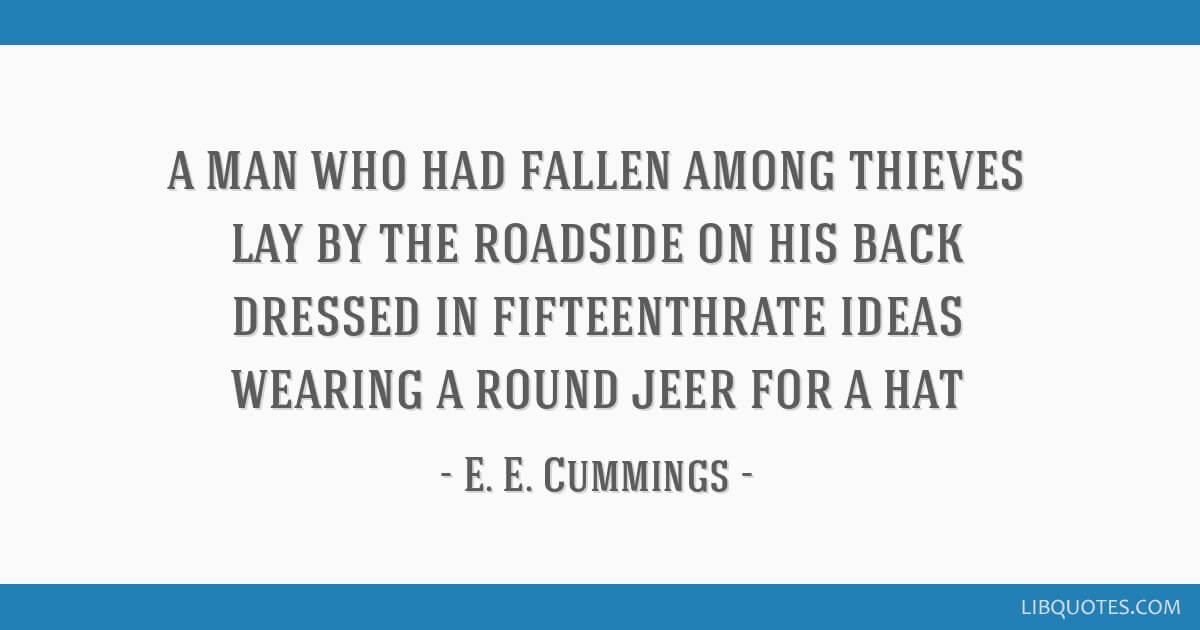e.e. cummings Explains What It Means To Be a Complete Human Being

It’s the birthday of poet E.E. Cummings (Edward Estlin Cummings)(books by this author ), born in Cambridge, Massachusetts (1894). He spent most of his life unhappy and irritable in New York, struggling to pay the bills, ostracized by other writers for his unpopular political views, yet he wrote many poems in a naïve style about the beauty of nature and love.
He had published several books of poetry, including Tulips and Chimneys (1923), but was still relatively unknown. He came to wider public attention by giving a series of lectures at Harvard University. Most lecturers spoke from behind a lectern, but he sat on the stage, read his poetry aloud, and talked about what it meant to him. The faculty members were embarrassed by his earnestness, but the undergraduates adored him and came to his lectures in droves. By the end of the 1950s, he had become the most popular poet in America.
If asked to explain Cummings’ popularity, I suppose I would offer the poem below, “a man who had fallen among thieves,” and ask readers to think if they’ve ever experienced a simpler or more compelling statement of what it means to be fully human:
a man who had fallen among thieves
lay by the roadside on his back
dressed in fifteenthrate ideas
wearing a round jeer for a hat
fate per a somewhat more than less
emancipated evening
had in return for consciousness
endowed him with a changeless grin
whereon a dozen staunch and leal
citizens did graze at pause
then fired by hypercivic zeal
sought newer pastures or because
swaddled with a frozen brook
of pinkest vomit out of eyes
which noticed nobody he looked
as if he did not care to rise
one hand did nothing on the vest
its wideflung friend clenched weakly dirt
while the mute trouserfly
confessed a button solemnly inert.
Brushing from whom the stiffened puke
i put him all into my arms
and staggered banged with terror through
a million billion trillion stars.
We live in a cold, dark universe that is completely indifferent to our happiness, yet we have the power to find meaning and to confer it onto our lives. There are countless ways to do this, but one of them is performing acts of kindness to people, whether they deserve it or not, at some expense to ourselves, without any hope of being recognized for what we do. We do it precisely because that’s what it means to be a human being.
Perhaps this is of particular relevance in our world today, where the lesson here seems to be getting further diluted with each passing day. Yet it’s not too late to remember who we are.

Craig,
Perhaps, I might offer my condolences and heartfelt prayers and best wishes to your fellow Californian’s, folks in the Western US and Canada suffering from Forrest and bush fires.
My admiration to all those thousands of selfless volunteers and Emergency Service Personnel without whose sacrifice these tragedies would be so much more devastating.
We appreciate that. Thanks.